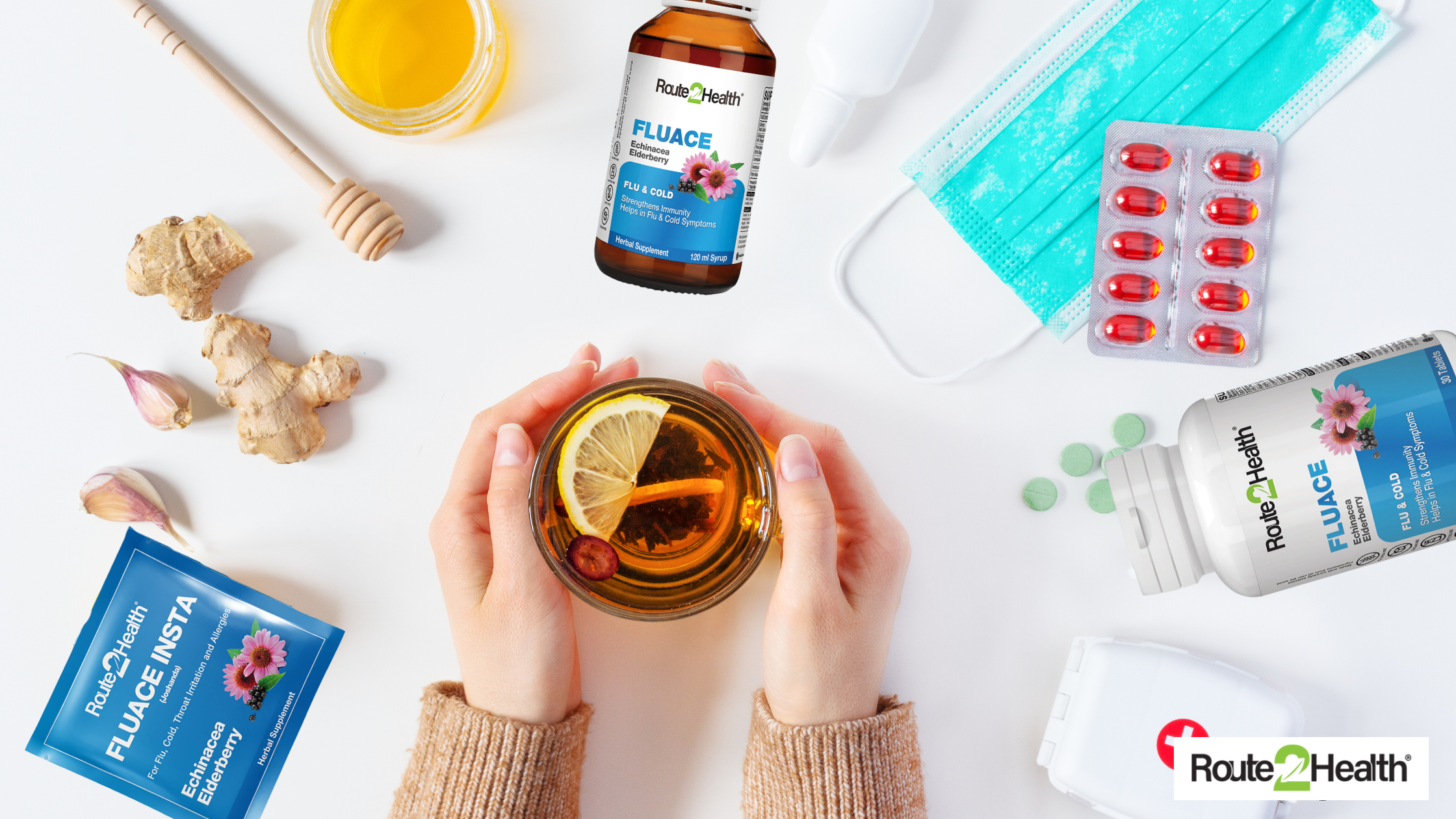What if I told you that you could breathe freely? You could do this by adopting a few simple habits. Like a well-tuned engine needs clean fuel, your lungs need clean air and healthy habits. Let’s look at how you can take control of your respiratory health and enjoy each breath!
Importance Of Keeping Airways Clear
Chest congestion can make breathing difficult. It happens when mucus builds up in the lungs, resulting in discomfort and coughing. Maintaining clear airways is critical for health. Chest congestion can lead to infections and other serious problems if left untreated.
What Causes Congestion?
Chest congestion can happen for various reasons:
- Infections: Colds, the flu, sinusitis, or coronavirus can cause congestion. Allergies: Allergic rhinitis (hay fever) can induce congestion.
- Allergens: An inflammatory reaction to allergens such as dust, pollen, and animal dander causes allergies.
- Irritants in the air, like smoke, perfume, dust, and exhaust, can cause congestion.
- Medications: You may get congestion if you take nasal sprays or drops for over three days.
Each factor has a unique impact on the airways, which complicates breathing. Knowing these triggers might help you avoid them.

Early Symptoms Of Chest Congestion
It would help if you looked for these typical symptoms:
- Persistent Cough: A cough lasting over a week may suggest chronic congestion or a problem.
- Cough with mucus: Cough containing mucus can be clear, yellow, or green.
- Shortness of Breath: This sensation is due to blocked or irritated airways. It makes breathing difficult.
- Wheezing or chest tightness: A whistling sound when inhaling or tightness in the chest is a common symptom of mucus-caused constricted airways.

Preventive Habits For Clear Airways
- Staying Hydrated: Drink at least eight glasses of water daily. Water helps thin mucus, making it easier for your body to cough it up. It also promotes general health by facilitating physiological processes.
- Humidification Practices: Keep your house’s humidity at 40-60%. It helps to keep your airways moist. To enhance the moisture in the air, use humidifiers or steam inhalation baths. This practice can relieve inflamed airways and aid in mucus removal.
- Healthy Diet Choices: Eat antioxidant-rich foods like berries, greens, and ginger. These foods assist in lowering inflammation in the body. Avoid dairy and sugary meals. They may cause mucus and worsen congestion.
- Breathing Exercise: According to the American Lung Association, Simple breathing exercises can strengthen your lungs. Pursed lip breathing and belly breathing can improve lung function. They increase oxygen intake and reduce stress on the respiratory system.
Tips For Managing Common Allergies
To avoid all those triggering factors that cause mucus:
- Allergen Management: According to the American Academy of Allergy, Asthma and Immunology, To reduce allergies in your home, use HEPA air purifiers. Wash your bedding regularly. Keeping windows closed during peak pollen seasons might also reduce exposure.

- Air Quality Awareness: Check the daily air quality index (AQI) before venturing outside. On polluted days, stay indoors. It will protect your lungs from irritants that may cause congestion.

- Quitting Smoking: According to the American Lung Association, smoking thickens and increases the quantity of mucus in the airway. Avoid smoking and secondhand smoke since both are hazardous to lung health. Smoking harms lung tissue and increases mucus production, making breathing difficult.

Herbal and Natural Remedies To Prevent Congestion
Some herbal and natural remedies to prevent congestion are :
- Steam inhalation: Steam inhalation helps release mucus in the airways. You can do this by taking a hot shower or soaking in a basin of hot water with a towel over your head.

- Ginger and honey tea: Ginger calms the respiratory system and is anti-inflammatory. It reduces inflammation, and honey functions as a natural cough suppressant.

- Turmeric Milk: Turmeric milk contains curcumin, which can help with breathing and boost immunity. Drinking warm turmeric milk before bedtime may also aid sleep.

The Role Of Diet In Managing Cough: Foods To Eat And Avoid
Exercise for Lung Health And Congestion Prevention
According to the American Lung Association, these two breathing exercises are vital for lung health. Breathing exercises can improve lung function and capacity. They can also relieve congestion. Here are some valuable activities to consider:
1. Pursed lip breathing:
Pursed lip breathing keeps the airways open longer, enabling more air to move in and out of the lungs. This approach is suitable for people with chronic lung issues.
How to Practice:
- Sit up straight.
- Inhale through your nose for a count of two, allowing the air to flow with a soft touch.
- Purse your lips as if you’re going to whistle.
- Exhale through pursed lips while counting to four or more.
- Do this exercise for 5 to 10 minutes daily to enhance lung function and lessen shortness of breath.
3. Diaphragmatic breathing (belly breathing):
This exercise focuses on proper diaphragm use. It can boost lung capacity and induce calm.
How to practice:
- Sit or lie down in a comfortable position.
- Hold one hand on your chest and the other on your abdomen.
- Inhale through your nose, raising your stomach above your chest.
- Exhale through your lips while feeling your abdomen drop.
- Aim to do this exercise for around 5 to 10 minutes a day.

Conclusion
Preventing chest congestion is critical to maintaining healthy lungs and general well-being. Simple practices can reduce congestion risk: Stay hydrated, exercise, and eat a balanced diet of fruits and vegetables. Also, know that allergies and pollutants can harm your lungs. Exercise can help. If you have chest congestion, try natural therapies. Steam inhalation and herbal teas can help.
Route2Health Prospan is an excellent choice for supporting respiratory health. It helps to clear mucus from the airways and promotes healthier breathing. As a result, it is an excellent supplement to your health regimen. You may enhance your lung health by following these recommendations and considering Prospan. Then you’ll be able to savor each breath in ease.
FAQs
1. What is chest congestion?
Chest congestion occurs when mucus builds in the airways, making breathing difficult. Allergies, infections, and environmental irritants are all possible causes.
2. What are some frequent signs of chest congestion?
Common symptoms include cough, shortness of breath, wheezing, and chest heaviness. Fever and greenish mucus are among the most severe symptoms.
3. How can I avoid chest congestion?
To avoid chest congestion, stay hydrated, exercise, reduce allergies, keep the air quality high, and eat a healthy, antioxidant-rich diet.
4. Is it okay to exercise if you have slight chest congestion?
Yes, light to moderate exercise is healthy. But listen to your body; if you feel exhausted or have significant shortness of breath, it’s better to rest.
5. How can Prospan assist with chest congestion?
Prospan is a natural medicine that clears mucus from the airways and helps with breathing. It might also help with chest congestion.
























































